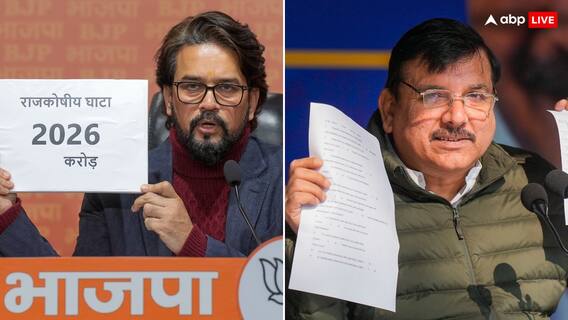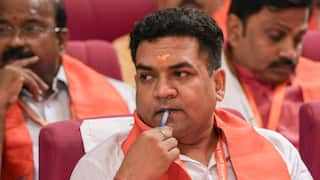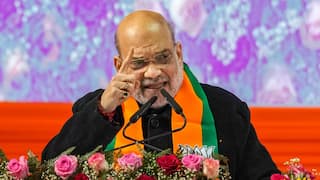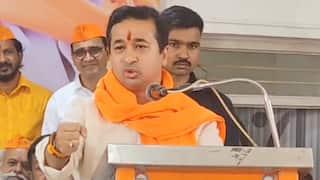'Golden time for India to emerge as innovator nation in biopharma sector'
Washington, Jun 23 (PTI): Post COVID19, it’s a golden time for India to emerge as an innovator nation in the biopharma sector, organiser of the annual India-US Healthcare Summit said Wednesday ahead of the 16th edition of the meeting this wee.

Washington, Jun 23 (PTI): Post COVID19, it’s a golden time for India to emerge as an innovator nation in the biopharma sector, organiser of the annual India-US Healthcare Summit said Wednesday ahead of the 16th edition of the meeting this week.
“This is a Golden Time for India to emerge as an innovator nation in the Biopharma sector. Key fundamentals under play are: current geo-political situation, innovation driven mindset of India’s top leadership, and momentum in the western world for diversity, inclusiveness and equity in clinical trials,” said Karun Rishi, president of USA-India Chamber of Commerce.
Being held virtually, like the previous two years, USAICC said the 16th annual BioPharma & Healthcare Summit is being attended by several thousand from across the world. Indian government and industry leaders participating are Dr Vinod Paul, Member, NITI Aayog, Hari Bhartia, Kiran Mazumdar Shaw, Naresh Trehan, and Shiv Sarin.
There is a strong participation from the US government. Lawrence Tabak, Acting Director, National Institutes of Health (NIH) and Max Bronstein, Assistant Director for Health Innovation in the White House Office of Science & Technology Policy (OSTP) are confirmed so are the past NIH Director Elias Zerhouni and the former US CDC Director Julie Gerberding.
Participation of Johnson & Johnson’s Executive Chairman Alex Gorsky, Biogen’s Chairman Stelios Papadopoulos along with top venture capitalists, academic leaders from the Harvard, MIT and global Research and Development heads of Janssen, Takeda, Sanofi, Amgen, Bayer, UCB and several other leading companies demonstrates the interest of global biopharma companies to collaborate with India, USAICC said.
Over the past few years, positive regulatory policies have been framed. Still, the global clinical trials being done in India are a very small percentage of overall global trials. This does not reflect India’s true potential, Rishi said.
“Robust clinical trials infrastructure and pragmatic regulatory policies are key for global clinical trials to come to India on a large scale. This will pave way for collaborations, investments, startups, employment generation of high paying jobs and GDP growth. Entire innovation ecosystem will be created in India,” he said.
Rishi said developing and nurturing the next generation of innovative leaders in biopharma is fundamental to India becoming an innovation nation and source of innovation for accelerating discovery, development and manufacture novel therapeutics for India and for the rest of the world.
“This is achievable. Political will is there. We need to work together for the common goal- patients. Global biopharma industry and the Indian government need to collaborate, communicate and remove trust deficit for the sake of patients,” Rishi said.
Andrew Plump, president of R&D, Takeda Pharmaceuticals said this year’s 16th Annual USAIC BioPharma & Healthcare Summit will convene and engage leaders to share their insights on critical topics driving the biopharma ecosystem.
“This year we are introducing a special panel focused on the clinical trial landscape in India, and we hope to identify opportunities where USAIC can collaborate with key stakeholders in India to promote clinical trial infrastructure, incentivise multinational biopharmaceutical companies to conduct trials, and ultimately enhance Indian patients’ access to innovative medicines,” he said.
Kiran Mazumdar Shaw, executive chairperson, Biocon Group and USAIC advisory Board member said that India’s innovation ecosystem is developing rapidly on a platform of technology convergence.
"India’s IT prowess has catalysed a Digital focus on biopharma innovation that is generating AI-powered diagnostics, Digital Health management and software for drug discovery,” she said.
"Handheld breast mammograms, AI powered CT-scans with instant readouts and rapid tests for viral and bacterial infections are some of the examples. Cell and gene therapies are also seeing rapid development with at least 3 start-ups with CAR-Ts in the clinic,” she said.
“The pandemic has revitalized the clinical research eco-system and the decade ahead will see India’s biopharma space investing exponentially in discovery led innovation. USAIC’s tireless efforts of driving India’s innovation efforts over the last 16 years are finally being realized, ” said Shaw.
“Innovation in the biopharma industry continues to be fueled by scientific and technological advancements. The COVID-19 pandemic further expedited digitalization, transforming drug research & development. Today several clinical trials are held virtually, with on-site visits limited to high-risk interventions and invasive monitoring,” said Hari Bhartia, founder & co-chairman, Jubilant Bhartia Group.
The Indian industry is also witnessing sweeping changes with massive investments by companies in scientific innovation like cell/gene therapies, integrated drug discovery models, mRNA-based vaccines etc, he said.
“This is further amplified by digital innovations like AI-backed drug research and digital clinical trials management assets. Despite regulatory and legal challenges, India has the potential to become one of the largest clinical trial markets globally. Its strong medical infrastructure, IPR protection, patient availability, experienced talent and cost competitiveness will act as key differentiators,” Bhartia said. PTI LKJ RCJ
(This story is published as part of the auto-generated syndicate wire feed. No editing has been done in the headline or the body by ABP Live.)
Trending News
Top Headlines







































